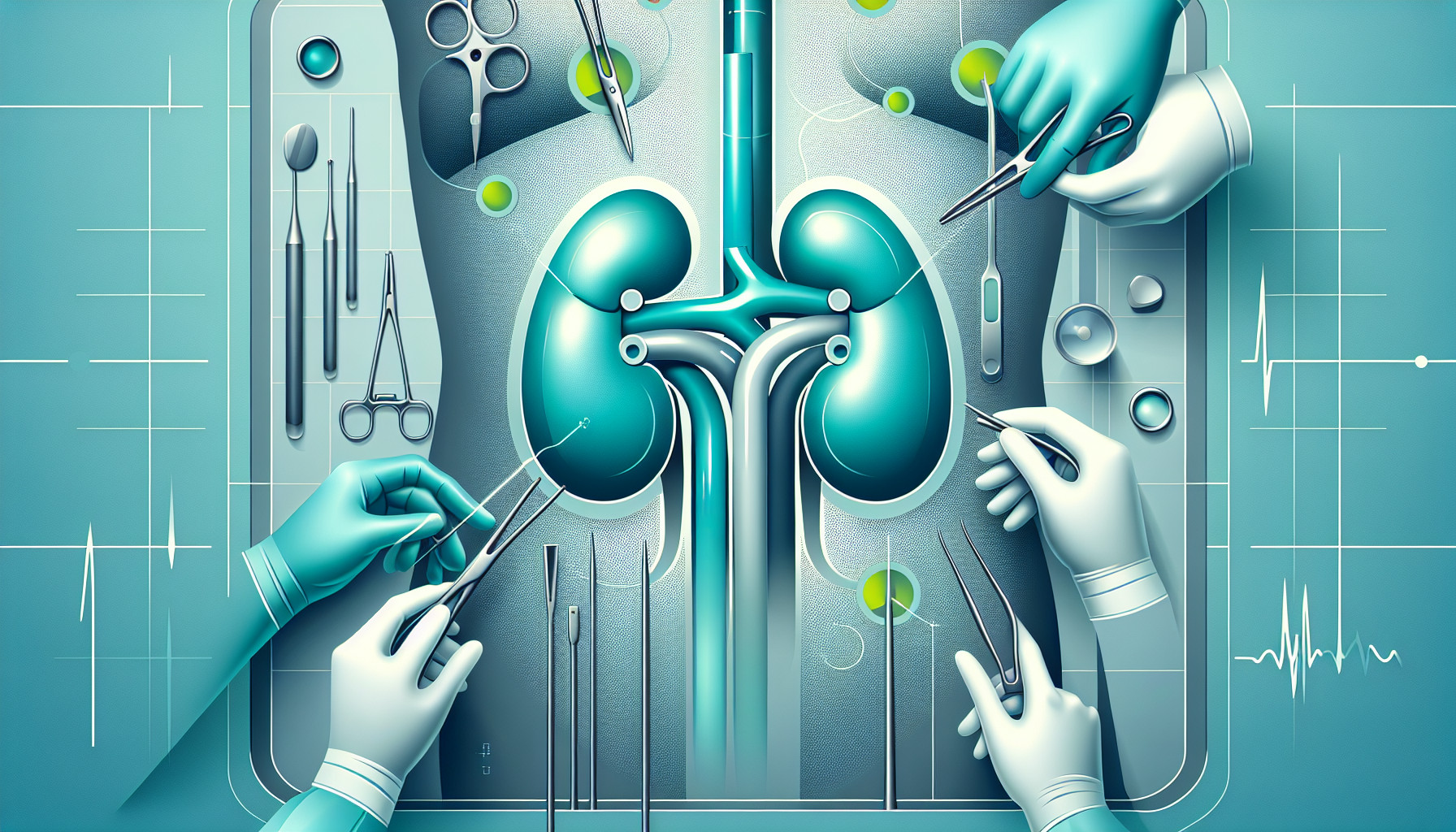Our Summary
Fabry disease is a rare genetic disorder caused by a defect in a certain enzyme due to mutations in a particular gene. This defect leads to the buildup of a specific compound in the body, causing various symptoms such as kidney, heart, and nervous system problems. This disease often starts showing signs from childhood and can progress to kidney failure, requiring dialysis or kidney transplantation. Since 2001, a treatment called enzyme replacement therapy (ERT) has been used and has shown positive effects on the heart and kidney function. Kidney transplantation is also a significant treatment option for patients with advanced disease. However, there is limited knowledge about the long-term results of transplantation, patient survival rates, or the role of ERT after a transplant. This review aims to examine all existing research on kidney transplantation in patients with Fabry disease - from the outcomes of the transplant to the possibility of disease recurrence, and the effects and potential interactions of ERT with other treatments.
FAQs
- What is Fabry disease and how does it affect the kidneys?
- What is enzyme replacement therapy (ERT) and how does it benefit patients with Fabry disease?
- What is the current knowledge on the long-term results of kidney transplantation in patients with Fabry disease?
Doctor’s Tip
A doctor might tell a patient undergoing a kidney transplant for Fabry disease to continue enzyme replacement therapy (ERT) post-transplant to help manage symptoms and potentially improve outcomes. It is important for patients to follow their treatment plan, attend regular follow-up appointments, and communicate any changes in symptoms or concerns with their healthcare team. It is also important for patients to maintain a healthy lifestyle, including following a balanced diet, staying physically active, and avoiding smoking and excessive alcohol consumption to support their overall health and well-being post-transplant.
Suitable For
Patients with Fabry disease who have advanced kidney failure and are not responding well to other treatments such as ERT or dialysis are typically recommended for kidney transplantation. Transplantation can improve kidney function and quality of life in these patients, and may also prevent further complications associated with kidney failure. It is important for these patients to be evaluated by a transplant center to determine their eligibility and suitability for transplantation, and to discuss the potential risks and benefits of the procedure. Additionally, close monitoring and follow-up care are essential for patients with Fabry disease who undergo kidney transplantation to ensure optimal outcomes and long-term success of the transplant.
Timeline
Before kidney transplant:
- Patient is diagnosed with Fabry disease, a rare genetic disorder causing various symptoms including kidney problems.
- Patient undergoes treatment with enzyme replacement therapy (ERT) to manage the symptoms.
- Disease progresses, leading to kidney failure.
- Patient starts dialysis to filter waste and excess fluids from the blood.
After kidney transplant:
- Patient undergoes evaluation for kidney transplant eligibility.
- Patient receives a kidney transplant from a living or deceased donor.
- Patient undergoes post-transplant care, including immunosuppressant medications to prevent rejection of the new kidney.
- Patient experiences improved kidney function and overall health.
- Patient may continue ERT treatment to manage Fabry disease symptoms.
- Patient undergoes regular follow-up appointments to monitor kidney function and overall health.
What to Ask Your Doctor
- What are the benefits of kidney transplantation for patients with Fabry disease compared to other treatment options such as dialysis?
- How successful are kidney transplants in patients with Fabry disease in terms of long-term outcomes and patient survival rates?
- What is the risk of disease recurrence after a kidney transplant in patients with Fabry disease?
- How does enzyme replacement therapy (ERT) interact with other treatments that may be required after a kidney transplant?
- Are there any specific considerations or precautions that need to be taken for patients with Fabry disease undergoing a kidney transplant?
- What is the expected recovery time and post-transplant care for patients with Fabry disease?
- Are there any specific lifestyle changes or medications that need to be followed after a kidney transplant for patients with Fabry disease?
- How often will follow-up appointments be needed after a kidney transplant for patients with Fabry disease?
- Are there any clinical trials or research studies available for patients with Fabry disease who have undergone a kidney transplant?
- What are the potential risks and complications associated with kidney transplantation in patients with Fabry disease, and how can they be managed?
Reference
Authors: Capelli I, Aiello V, Gasperoni L, Comai G, Corradetti V, Ravaioli M, Biagini E, Graziano C, La Manna G. Journal: Medicina (Kaunas). 2020 Jun 10;56(6):284. doi: 10.3390/medicina56060284. PMID: 32532136
